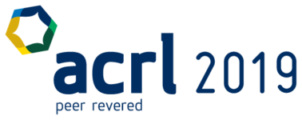| ETextbooks are like a storm looming on the horizon. For future students, many entering college in the coming years will have used this resource all their academic lives. From their time in kindergarten and continuing to the twelfth grade, students are using iPads and e-readers to access textbooks. By the time students reach college, eTextbooks will be second nature if the technology evolves to support them. But how do students really feel about eTexbooks. During the fall 2012 and spring 2013 semesters, our institution participated in the Educause study examining eTextbook use. Parallel classes in which faculty used both eTextbooks and print textbooks are compared. Afterwards we listened to what students had to say about these textbooks. Through a series of surveys and focus groups, students spoke about their experiences in using eTextbooks in the classroom. What they had to say went far beyond the impact in Textbook cost. Accessibility, highlighting, note taking, ease of use, etc. have a big impact in whether students will use an eTextbook or not. Our poster will present information on the fall 2012 participation by Baylor University in the EDUCAUSE/Internet2 eTextbook pilot. See what faculty and students had to say about eTextbooks as an alternative to the traditional textbook. |










